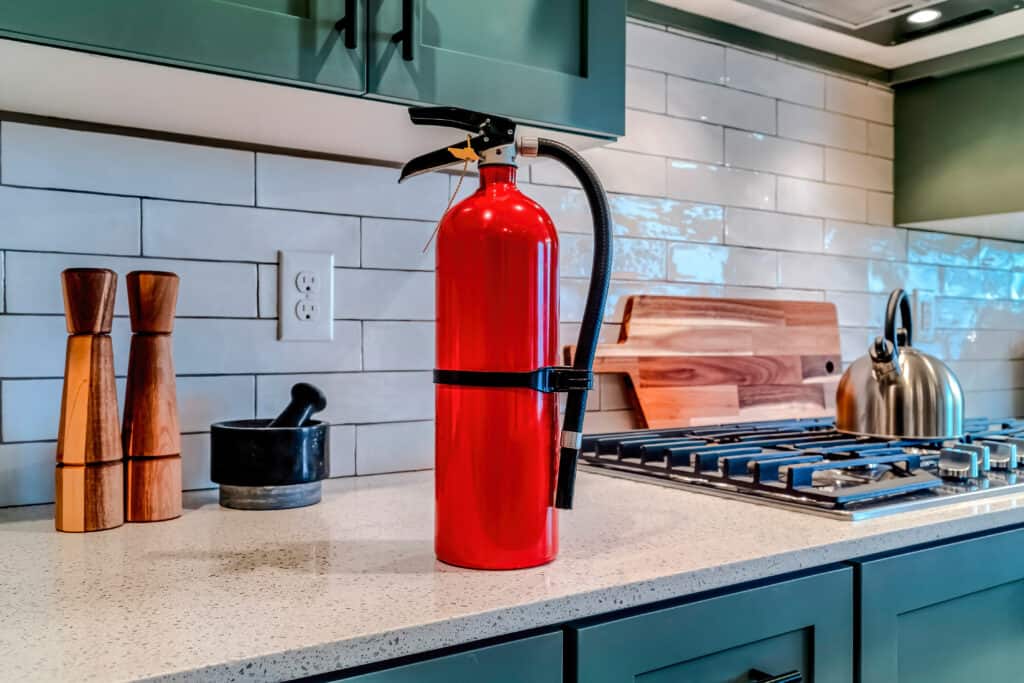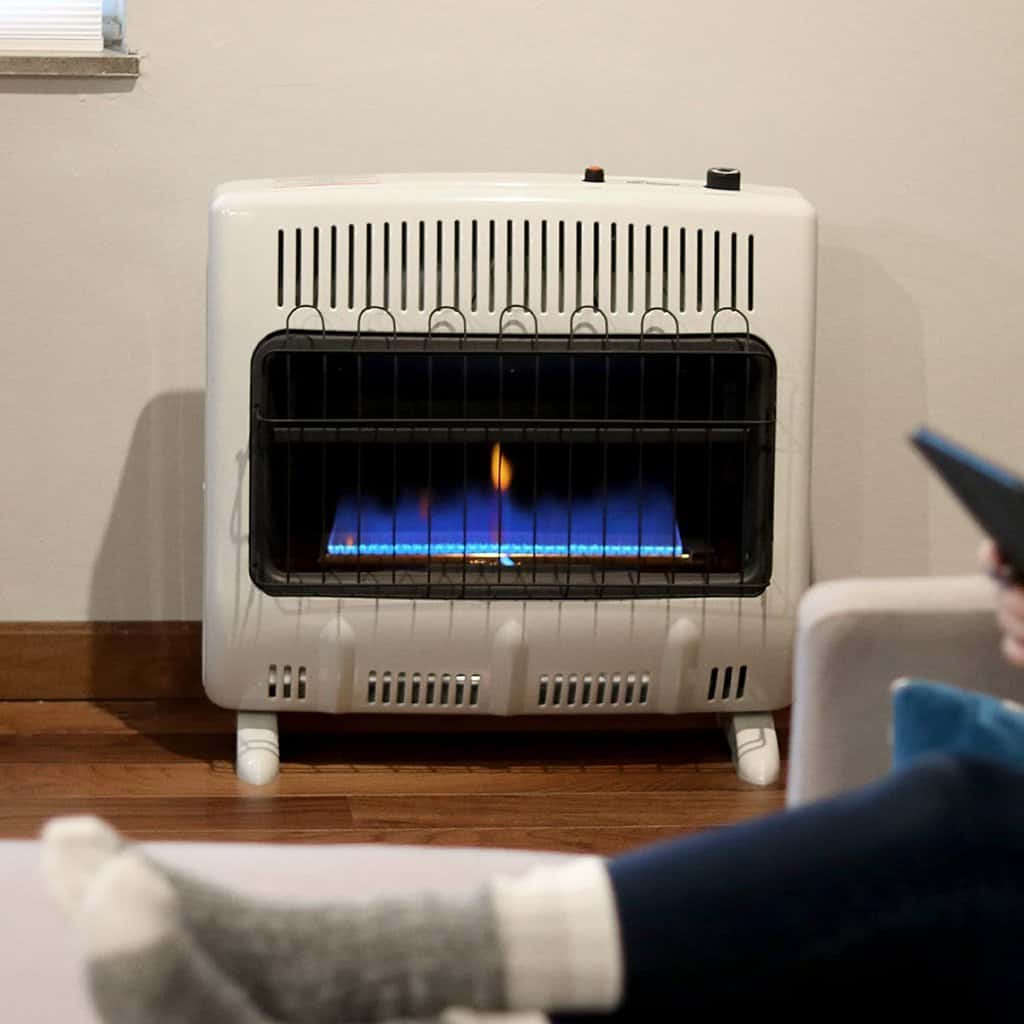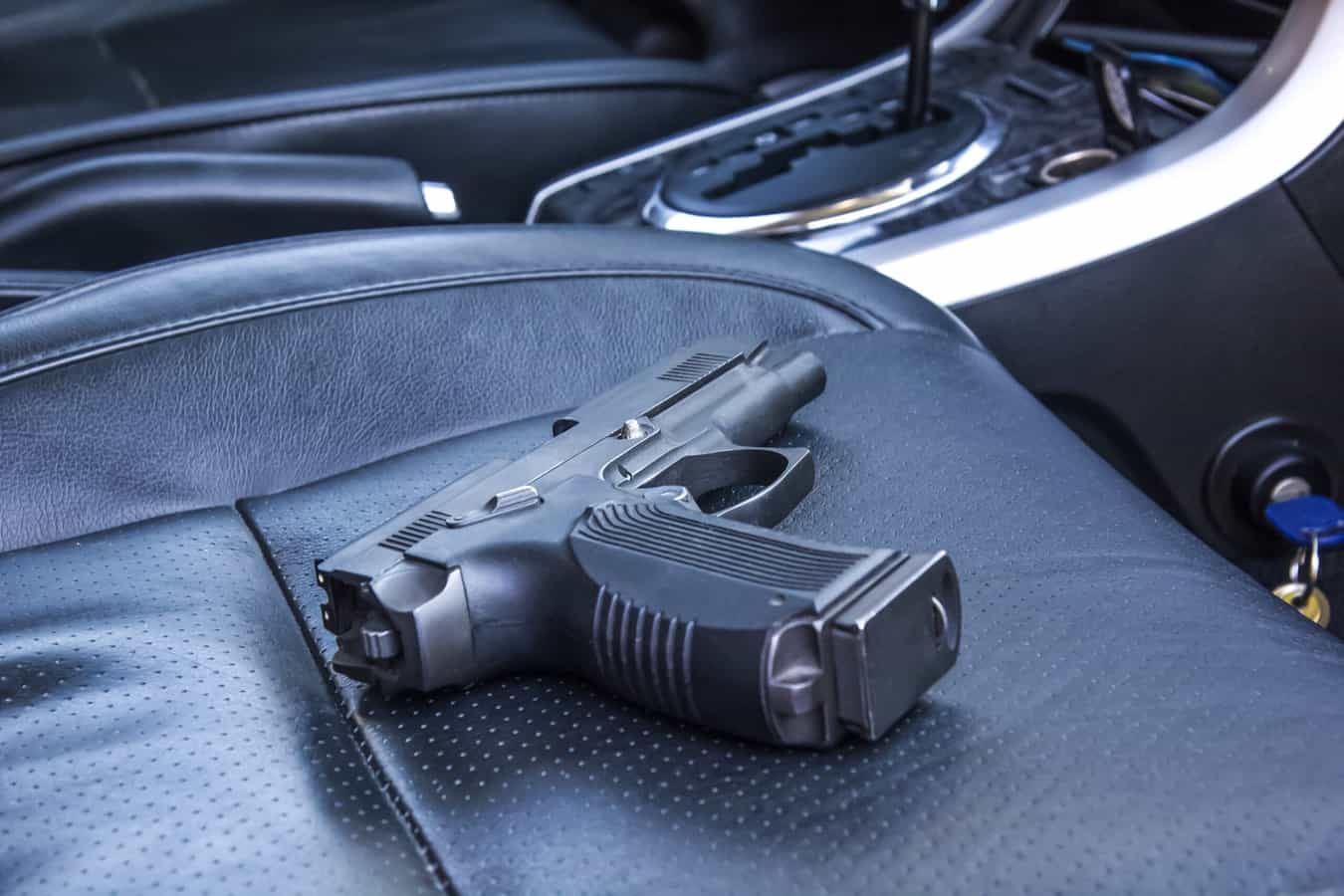
RV Fire Safety: Don’t Forget This Important Maintenance
It’s estimated that thousands of RV fires occur every year, causing property damage, injury, and even loss of life. An RV fire is a scary thing, but the good news is that by taking steps to prevent and prepare for fires, you can keep yourself safe. Let’s look at the basics of RV fire safety, plus two of the most essential parts of being prepared for an RV fire: smoke detectors and fire extinguishers.
RV fires can happen both when your RV is moving or parked. Plus, fires can have a variety of causes. Cooking fires, fires caused by improperly maintained propane systems, and electrical fires are some of the most common types of RV fires.
To help prevent these fires, you should ensure you keep your RV well-maintained. Before you leave for any trip, you should inspect your rig to make sure everything’s in good working order. One of the most important maintenance items is ensuring your shore power cord is in good condition; if it’s not, you should replace it immediately.
Additionally, you should always have a plan in case of a fire. Not only that, you must practice it with anyone traveling with you. Ensure everyone knows where the exits are, how to get them, and how to get them open.
Other RV fire safety tips
Some other important RV fire safety tips are:
- Ensure your propane is shut off at the tank, and all propane appliances are turned off while driving
- Never leave cooking or running appliances unattended
- Keep combustibles, like paper products, far away from the stove
- Avoid overloading electrical outlets through overuse of powerstrips
Two of the most important things to have in your RV for adequate fire safety are fire extinguishers and smoke detectors.
Carry a fire extinguisher in your RV
For adequate fire safety, your RV should have at least one fire extinguisher, and ideally multiple in different locations, especially in larger RVs.
The different types of fire extinguishers
There are several different types of fire extinguishers:
- Class A extinguishers – for fires caused by combustibles like paper or wood
- Class B extinguishers – for fires caused by liquids like grease, gasoline, or oil
- Class C extinguishers – for electrical fires
- Class D extinguishers – for fires caused by flammable metals
Some fire extinguishers are rated for multiple classes, and will have ratings like “BC” or “ABC.” Per the National Fire Protection Agency, your RV should at a minimum have a BC-rated extinguisher near the exit. Because many RV fires are caused by things like paper and wood, it’s smart to also have a Class-A extinguisher on hand.
It’s a good idea to spread fire extinguishers throughout your RV, especially in larger RVs like Class As. For example, have one in the kitchen, one in the sleeping area, and one accessible from outside the RV.
How to use a fire extinguisher
If you have to put out a fire with an extinguisher, it’s important to know how to use one effectively. (During a fire is not a great time to learn.)
You can remember how to use a fire extinguisher with the acronym PASS:
- Pull the pin at the top of the extinguisher
- Aim the nozzle at the base of the fire
- Squeeze the handle while standing about eight feet away from the fire
- Sweep the nozzle back and forth at the base of the fire until it is extinguished. Keep an eye on the fire to ensure it does not reignite
Keep in mind that a fire extinguisher is meant for a relatively small fire. If there’s a large raging blaze in your RV, you should use your exit plan to get you and everyone else safely out of the RV.
Once outside, it is absolutely essential that you DO NOT go back inside the RV. Instead, get somewhere safe and call 911.
Maintain an RV smoke detector
Your RV should have at least one smoke detector installed, and in many cases, RVers have one at each end of their RV (near the sleeping area and in the main living area). Many RVers also install smoke detectors in places like exterior compartments that contain electronics.
Types of smoke detectors
There are two types of smoke detectors:
- Ionization detectors detect smoke caused by combustion; that is, a fire from a visible flame
- Photoelectric detectors detect smoke caused by a smoldering fire, such as those caused by an electrical short
Ideally, your RV’s smoke detector will be a dual sensor detector, meaning it uses both ionization and photoelectric detectors. Otherwise, you should ensure you have at least one of each type of detector.
Your smoke detector will either be battery-powered or hardwired to your 12V power system. Battery-powered detectors are the more convenient option, but you’ll need to ensure you test and replace the batteries regularly. Hardwired detectors are more work to install and more expensive, but ensure your detector always has power. Even if your RV power system goes out, they have backup batteries.
Expiration and testing
Keep in mind that smoke detectors expire. Be sure to know your detector’s expiration date, and promptly replace it with a new one when that time arrives. Typically, an RV smoke detector is rated for 5 to 10 years.
You should test your smoke detectors at least once a year to ensure they function properly. If your detector starts chirping, this indicates it either needs new batteries or needs to be replaced. For proper function, it’s smart to clean your smoke detectors periodically as well.
Install a propane detector
Besides a smoke detector, you should also have a propane detector in your RV. This device will detect if your propane system has a leak, which can prevent a huge risk of fire and health effects. Just like with smoke detectors, you should periodically test your propane detectors and keep them clean.
Also, while not directly related to RV fire safety, you should have a carbon monoxide or CO detector in your RV. Typically, a CO detector should be installed near the sleeping area. The device will detect carbon monoxide produced by things like generators and stoves, which can cause severe health impacts and even death.
Keep track of your RV repairs & maintenance
We all hope we’ll never have an RV fire, and most of us never will. But if one does occur, it’s absolutely essential that you be prepared. By following our safety tips and by keeping your fire extinguishers and smoke detectors in good working order, you can rest easy you’ll be ready for anything.
Ensure you diligently monitor your RV’s upkeep and repairs using a digital platform like RV LIFE Maintenance. This tool allows you to store all your documents in a single location, and provides timely alerts for upcoming maintenance. This proactive approach helps prevent expensive repairs and significantly reduces the risk of severe accidents.




